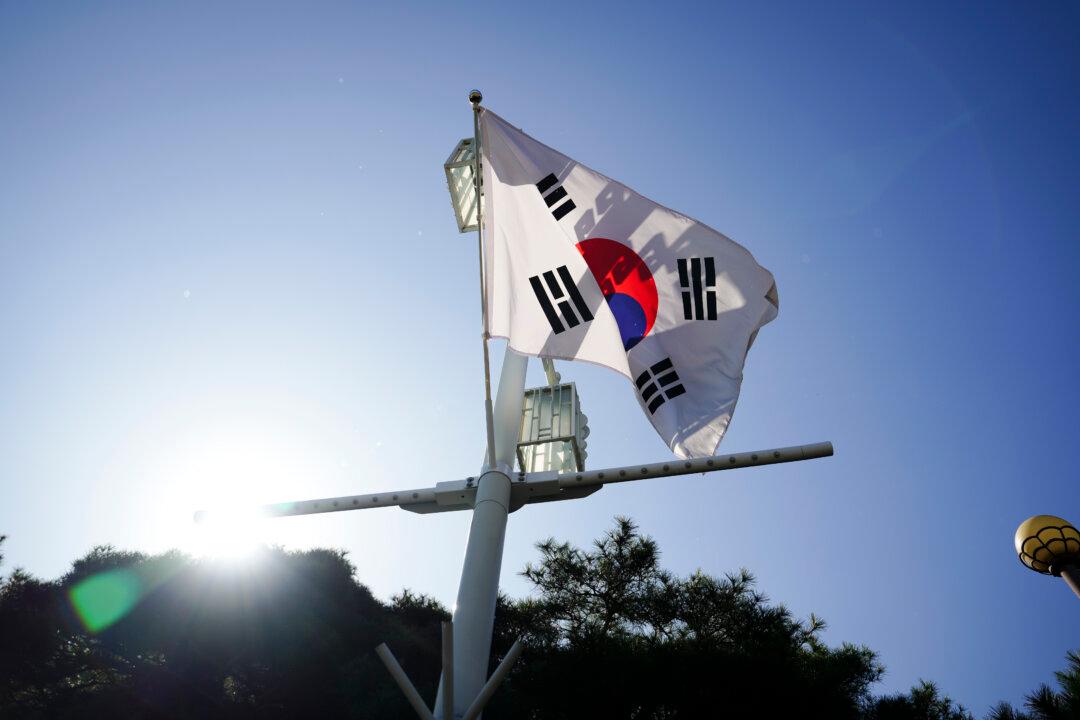South Korean intelligence agencies detected a structure allegedly built by China in waters where the exclusive economic zones of both countries overlap in the West Sea, according to a local report.
The structure was described as a mobile steel framework measuring about 150 feet in diameter and 150 feet in height, The Chosun Daily reported, citing South Korean officials on Jan. 9.





